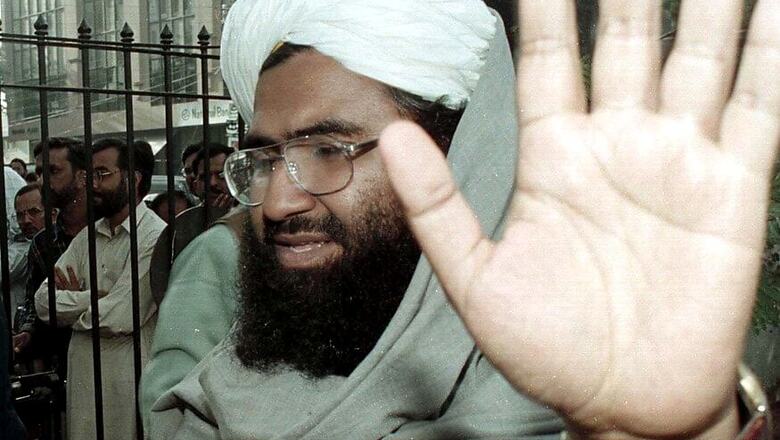
views
New Delhi: Amid heightened tensions with India over the Narendra Modi government’s Article 370 move, Pakistan has secretly released Jaish-e-Mohammed chief Maulana Masood Azhar from protective custody.
Azhar, who was designated a terrorist by the United Nations in May 2019, has been released to plan terrorist operations, the Hindustan Times reported.
The Indian Navy had recently warned that an "underwater wing" of JeM was training people to carry out attacks. Chief of Naval Staff Admiral Karambir Singh said all stakeholders in coastal security are ensuring that there is no intrusion from the sea. "We have received intelligence (input) that an underwater wing of Jaish-e-Mohammed is training people to carry out attacks from water and that is one change. "But we are fully prepared and will thwart any such attempt," he added.
The UN’s move came after veto-wielding permanent member China — also Pakistan’s all-weather ally — lifted its technical hold on the proposal by the US, the UK and France to list him.
It was a huge victory for India after a decade of relentless efforts to ban the mastermind of several terror attacks against India, including the deadly Pulwama attack against Indian security forces. The listing subjected Azhar to an assets freeze, travel ban and an arms embargo.
Recently, India declared Azhar the first individual terrorist under the amended Unlawful Activities (Prevention) Act (UAPA). The Ministry of Home Affairs, through a gazette notification, declared Azhar, LeT founder Hafiz Mohammad Saeed, Mumbai 26/11 attack mastermind Zakir Ur Rehman Lakhvi and 1993 Bombay blast accused Dawood Ibrahim as terrorists, which means that irrespective of the organisation they are associated with, they will be treated as terrorists under the Indian law.
Pakistan’s latest move comes in the backdrop of India’s decision to scrap the special status of Jammu and Kashmir and divide it into two Union Territories — J&K and Ladakh. This irked the neighbour, which scaled with diplomatic ties with India and also suspended bilateral trade.
Services of the Samjhauta Express were halted and Pakistan knocked on the doors of the United Nations in a bid to internationalise the issue. However, it did not get much success as the global community agreed that Kashmir was a bilateral issue that must be resolved between the two countries.



















Comments
0 comment